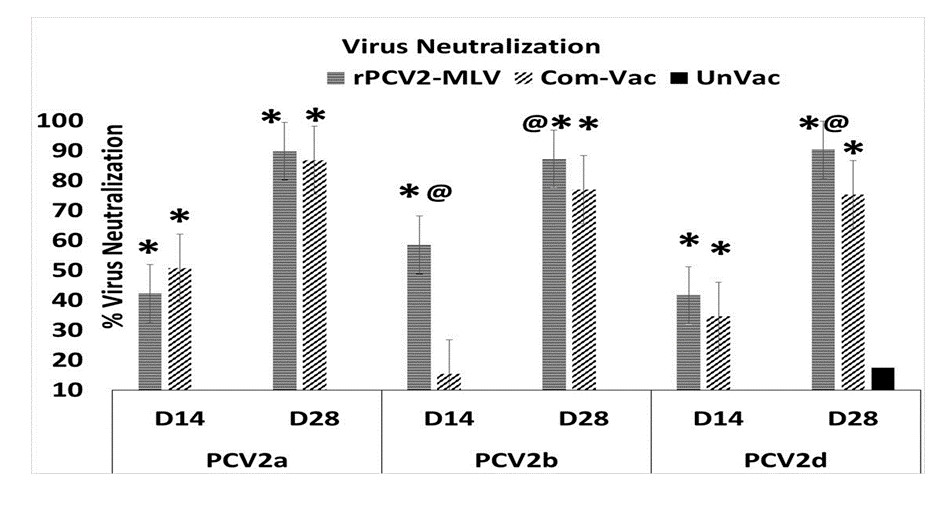
Sera taken 14 and 28 days after immunization of pigs with the IRT vaccine (rPCV2-MLV), a commercial vaccine, or mock vaccine were tested for neutralization of PCV2a, 2b, and 2d viruses.
The asterisks (*) denote significant improvement from the mock vaccine sera.
The ampersand (@) denotes improvements of the IRT vaccine over the commercial vaccine.